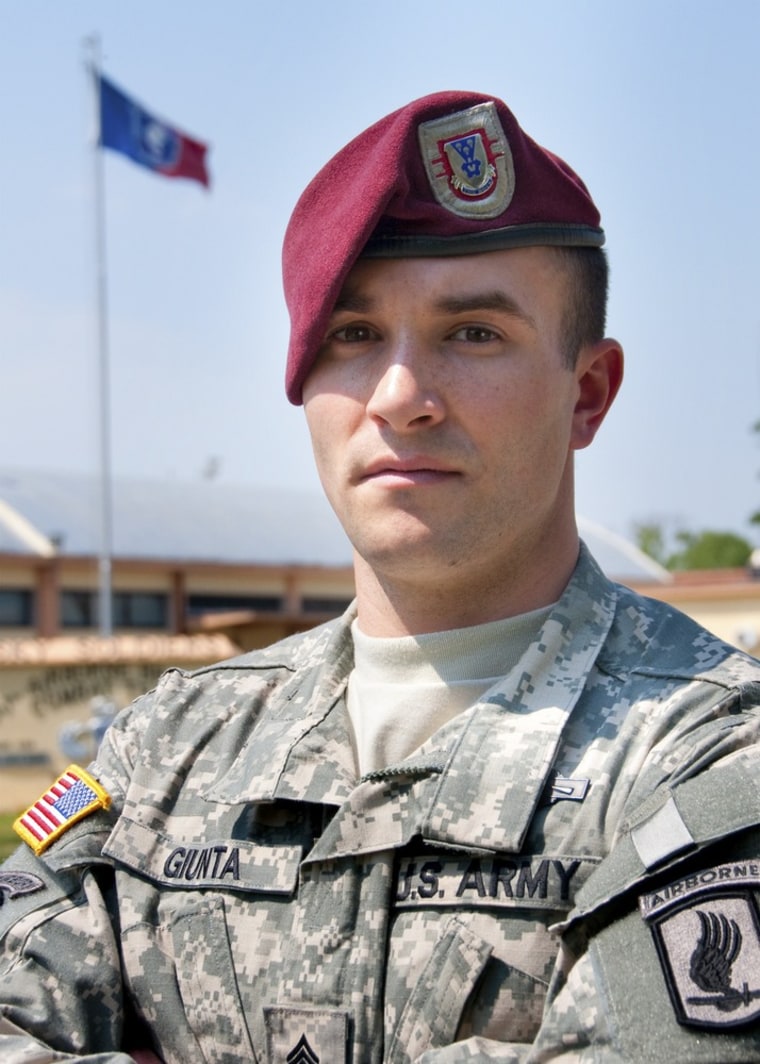One morning a little more than 41 years ago, four of us — all soldiers — marched with the president from the Oval Office into the blinding sunshine. We mounted a low platform on the South Lawn under a bright blue, cloudless sky, and during a short ceremony, we were presented with Medals of Honor by Richard M. Nixon.
One by one, a name and citation was read aloud, and then the president fastened a medal, hanging on a ribbon, around each neck. In just a few minutes our lives were forever changed.
Not much of the event is still clear to me. I vaguely recall that Nixon wore makeup and that he gave a major policy speech at the end of the ceremony. In the East Room, where we had gathered before the ceremony, the refreshments were stale. In the Oval Office, the president asked me if I was nervous, and I nervously said I wasn’t.
But the one thing that I recall most vividly is that there were thousands of people standing on the grass to witness the event. That morning the gates to the South Lawn were thrown open, and absolutely anyone could enter the White House grounds and watch the ceremony.
Government employees were excused from work to attend. There were people as far as I could see — thousands of them — pushed all the way back to the wrought iron fence that ringed the grounds. Security was a much different, much simpler affair back then. Today, you can’t drive or fly near the place, and pretty soon you won’t be able to walk anywhere near it either.
On Tuesday, Army Staff Sergeant Salvatore Giunta received a Medal of Honor for his service in Afghanistan. He became the first living recipient since Vietnam to receive the honor for action in a war still being fought on foreign soil.
At 25 years old, he is less than half the age of the next oldest recipient, and he is so young that he could, in time, be the only one left alive.
Dwindling numbers
Forty years ago, recipients gathered every other year for dinner. Among those at my first meal were Eddie Rickenbacker, the ace from World War I, and Bill Seach, who under rifle and machine gun fire charged the citadel at Beijing in 1900.
Many, like Jimmy Doolittle and Audie Murphy, were living legends and household names. They are, of course, all gone. When I was decorated, there were about 400 living holders of the Medal. Today, there are only 87.
Giunta will bear many burdens, and one of them will be that he is the youngest in a line that stretches back to the Civil War, when the Medal of Honor was first awarded.
The weight of history is heavy, and it is heaviest for all those who feel strongly that, no matter how they are extolled, they were just doing what was expected of them.
Accepting for those who can't
All of us are acutely aware that the majority of medals are awarded to men who did not survive the actions for which they were cited — and so, we represent them by accepting this honor.
We wear the award less for ourselves than for those who can’t: troops who fought valiantly, but whose actions weren't witnessed. Or whose actions were witnessed by warriors who were also killed. We wear it for those who were blinded, burned, maimed.
Giunta has already said that he was just doing his duty, that he didn't do anything extraordinary, that anyone else would have done the same thing. We hear the same from all veterans whose memories are filled with friends lost in the furnace of war.
Anyone who has spent time in close combat with an armed enemy knows that when our comrades’ lives are at stake valor becomes commonplace.
Heroism will outlast media frenzy
There may be others from this war who will be similarly decorated, but for now Giunta is unique. His immediate life will not be unlike that of Roger Donlon, the first recipient of the Medal of Honor for combat in Vietnam in 1964. Because Giunta is the first living recipient in a generation, he will be the object of a ferocious media frenzy, and he is scheduled for a nearly unending series of appearances and interviews.
A nation that has grown tired of war, and is now largely ignorant of what its young people in uniform are doing, will have something novel on which to ruminate. His photo will be in newspapers and magazines, on the Web, everywhere. His face and his story will be familiar.
But only for a while. The hoopla will end, and the media and the nation will move on. Such is the path of a democracy in which the mantle of service is worn only by the honored few who feel its obligation. But when Salvatore Giunta’s name and face are no longer familiar, his example will still be the stuff from which freedom is made.
